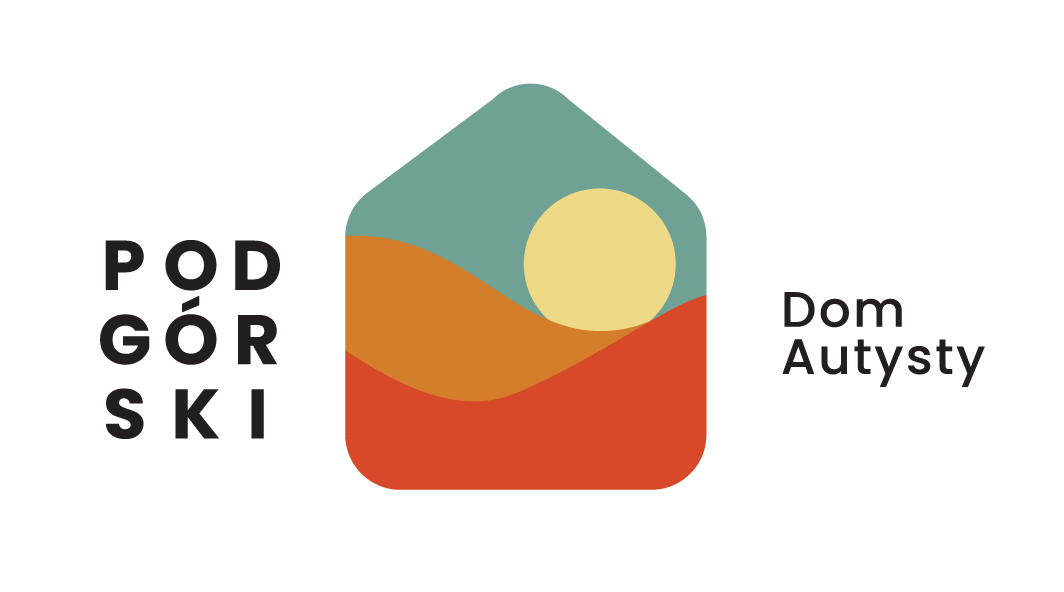PodGórski Dom Autysty
Autism is a complex developmental brain disorder that affects an individual’s ability to communicate, form relationships with others, and perceive and interpret the world (ASD). It is characterized by a wide range of symptoms and severity, which is why it is referred to as a “spectrum,” as each person with autism may experience it differently.
What is autism?
-
Difficulties in communication and social interactionPeople with autism may struggle with making eye contact, interpreting gestures, facial expressions, or tone of voice. They may also understand social rules differently.
-
Restricted, repetitive patterns of behavior and interestsPeople with ASD often show intense interest in specific topics, may repeat certain behaviors, and can be strongly attached to routines.
-
Different ways of learning and responding to stimuliThey may be hypersensitive or hyposensitive to sensory stimuli, such as light, sound, or touch.
How can parents cope?
-
Education and understanding: Understanding the specifics of autism is key. Many organizations offer educational resources for parents.
-
Early intervention: The earlier appropriate therapies are started (e.g., behavioral, speech, occupational therapy), the better the outcomes for the child may be.
-
Building a support network and support: The sooner an autistic person starts appropriate treatment, The sooner an autistic person starts appropriate treatment, neurological, occupational therapy and many others), the better the results can be a child and then an autistic adult.
-
Environment adaptation: Creating an environment that supports a child’s development and takes into account their individual sensory and communication needs.
-
Communication: Learning and using alternative methods of communication if necessary (e.g. picture communication systems).
-
Staying calm and patient: Coping with the challenges of raising a child with ASD takes time, patience, and flexibility.
-
Look after yourself: Parents also need time to regenerate and take care of their own mental and physical health.
Support for adults with autism
-
Work and independence: Support in finding employment and building life skills to increase independence.
-
Social services: Using available social support services such as therapy, vocational training or housing support.
-
Support networks: Support groups for adults with ASD that offer the opportunity to meet and share experiences.
-
Tailored therapies: Continuation of behavioural, psychological, and other therapies tailored to the needs of adults.
Remember that each person with autism is unique and therefore requires an individually tailored approach. Support for people with ASD and their families is an ongoing process that requires adjustment to changing needs at different stages of life.
Adults with severe autism spectrum disorder may experience significant challenges in their daily lives, which vary depending on the individual's characteristics, needs, and abilities. In cases of severe autism, these challenges often include significant difficulties in communication, limited ability to care for themselves, and the need for ongoing support.
Level of advancement
In cases of severe autism, people may:
-
Communication: Have very limited or no ability to communicate verbally. They often use alternative methods of communication, such as picture systems, communication devices.
-
Repetitive Behaviors: Exhibit intense and often repetitive behaviours. This may include body movements (e.g., rocking, twirling) and interest in a limited range of topics or activities.
-
Sensory Reactions: Have strong or unusual reactions to sensory stimuli such as sounds, light, or touch.
-
Dependence on Care: Need constant care and support with daily activities such as dressing, eating and hygiene.
What Life Looks Like
-
Home Environment: Many people with severe autism live at home with parents or carers who provide day-to-day care and support. There are also specialist centres or housing communities that offer specialist care.
-
Education and Employment: Education for people with severe autism often focuses on life and social skills. Employment may be limited, although some people may work in sheltered work environments.
-
Social Support: These people often use various forms of social support, such as behavioural therapies, sociotherapeutic activities, or specialised educational programs.
-
Health and Medical Care: Regular visits to specialists and doctors are important, especially since people with severe autism may have co-occurring health conditions.
-
Activities and Interests: People with severe autism often have specific interests or activities that they enjoy and can be an important part of their lives.
-
Social Life: Social interactions may be limited, but some people may be able to participate in specially adapted group activities or meetings.
Conclusions
Life as an adult with severe autism spectrum disorder can be challenging, but with the right support and understanding, these individuals can experience happiness and fulfillment. It is important that society and institutions offer effective support and resources that enable these individuals and their families to live as fully as possible.
